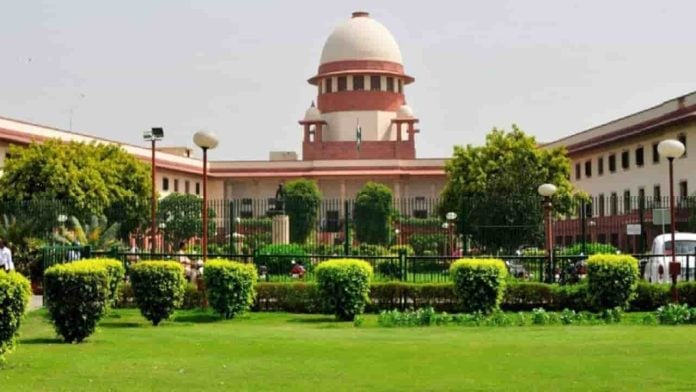The Supreme Court has refused to quash the dismissal of a civil judge, who was used to pronouncing the operative part/outcome of a verdict without preparing or dictating the entire text of the judgment.
The Bench of Justice V. Ramasubramanian and Justice Pankaj Mithal passed the orders on Monday on a petition filed by the Registrar General of the Karnataka High Court, challenging the Full Bench order of the High Court that had set aside the dismissal of the civil judge from service.
While noting that the judge in question had passed the blame to his stenographer, claiming that the steno was inefficient, the Bench observed that such an approach was totally unsustainable.
The Apex Court said that a judicial officer could not pronounce the concluding portion of his verdict in open court without preparing or dictating the entire text of the judgment.
It further said that during the departmental enquiry, the respondent only passed on the responsibility to the inefficient and allegedly novice stenographer.
The Bench expressed surprise on how the findings with regard to such serious charges had been completely white-washed by the High Court in its November 2011 verdict.
It also took note of some of the charges, which revolved around judicial pronouncements and decision-making process and thus, could not form the foundation of departmental proceedings.
The Supreme Court observed that the charges of gross negligence and callousness in not preparing judgments, but providing a fait accompli, were completely unacceptable and unbecoming of a judicial officer.
The Bench termed as ‘entirely unacceptable,’ the ‘defence’ taken by the respondent judge that lack of experience and inefficiency on part of the stenographer has to be blamed for the whole text of the judgment not getting ready, even after several days of pronouncing the operative part in open court.
The Apex Court noted that the High Court, unfortunately, not only accepted this panchatantra story, but also went to the extent of blaming the administration for not examining the stenographer as a witness.
As per the case, the respondent-judge was placed under suspension in 2005 followed by the initiation of disciplinary proceedings with four charge memos. As per enquiry reports, some of the charges were proved.
After the judge was served two showcause notices, the full bench of the High Court decided to dismiss the respondent from service. Based on this resolution, the Governor of Karnataka dismissed the respondent from service in 2009.
The judge challenged the findings of the enquiry officer and also his dismissal through separate petitions before the High Court. A Single-Judge Bench of the High Court dismissed the pleas, however, the petitions were allowed by a Division Bench in November 2011.
The Registrar General of the High Court challenged this order before the Supreme Court.
The petitions against the Single-Bench order were allowed by a strange order that not only set aside the order of penalty and findings of the enquiry officer, but also directed that no further inquiry could be held against the respondent, noted the Supreme Court.
It said two of the charges against the respondent in particular were very serious, and the replies given by the respondent to these charges were wishy-washy.
The first charge was pronouncing the operative portion of a judgment in open court without the verdict being ready. The second was allegedly and wrongfully buying properties for sale in public auction in criminal cases.
The Supreme Court noted that the High Court did not examine the penalty order correctly and instead made a finding that they had first-hand information about the problems faced by judicial officers.
It wondered how the High Court drew the conclusion that the respondent was an innocent and honest officer. It further expressed surprise over the the High Court observing that the respondent’s actions did not constitute grave misconduct and that his dismissal from service was “very atrocious”.
Terming these observations as very very curious, the Supreme Court said it amounted to an attack on the full court of the High Court.
(Case title: The Registrar General, High Court of Karnataka & Anr vs M Narasimha Prasad)


